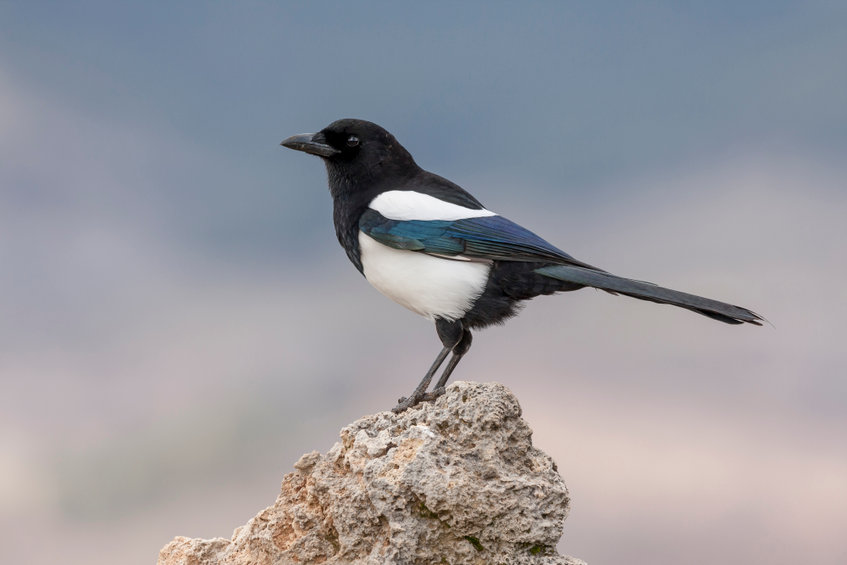
Applications by Welsh farmers for general licences to control wild birds have been made stricter following a review by Natural Resources Wales (NRW).
From 1 July, those who wish to control magpies, jays and jackdaws to protect species of conservation concern must now apply for a specific licence rather than rely on general licence GL004.
The NRW Board voted through a raft of proposals earlier this week, with six votes in favour and three against.
The decision comes following a review of the regulatory body's licencing system to "ensure processes currently in place are robust and proportionate".
But the British Association for Shooting and Conservation (BASC) Wales said the move was 'ill-judged', as it would introduce 'needless red tape'.
While all wild birds are protected by law, there are specific circumstances where NRW licences their lethal control, such as to protect species of conservation concern and to prevent damage to crops and livestock.
Ceri Davies, NRW's executive director for policy said: “We are committed to delivering a licensing system which is effective, practical and proportionate for users, while providing the necessary protection for birds.
“We are confident that following the Board decisions that we have a robust and proportionate approach to our general licences.
"To ensure that we are using the most up to date evidence and data, we will in addition be establishing a formal six-yearly review process for our general licences.”
But BASC Wales said the NRW's decision to further tighten the rules for land managers to control magpies, jays and jackdaws was a 'retrograde blow for conservation'.
Steve Griffiths, BASC Wales director, said: “The bureaucracy required to apply for these individual licences can take months to navigate.
"That means there will be damage inflicted on species that are of conservation concern in Wales, such as curlew.
“NRW has failed to provide evidence for this unnecessary policy change. It is a retrograde blow for conservation in Wales.”
He added: “There are hundreds of dedicated and hardworking conservationists and wildlife managers across Wales who will righty be in disbelief at this decision.”
What did NRW's Board agree on?
The decisions made by the Board will mean changes to licences from 1 July and these include:
• Species whose populations in Wales are significantly declining will not normally be considered suitable for listing on general licences.
• No additional species will be added to the scope of general licences at this time.
• The general licence for the purpose of preventing serious damage to crops and livestock will specify which species of birds may be controlled to prevent which types of damage.
• The general licence for the purpose of conserving wild birds will allow the control of carrion crow only, to conserve a list of Birds of Conservation Concern (BoCC) red or amber listed species which breed in Wales and which are considered vulnerable to predation by carrion crow.
• A general licence will continue to be issued for the control of feral pigeon for protecting public health and safety. Controlling any species of gull for this purpose will continue to require applying for specific licences.
• Using cage traps to control wild birds will be subject to a number of new conditions and advice concerning animal welfare and reducing risk of bycatch.
• The number of SSSIs where general licences may be used will be increased.
